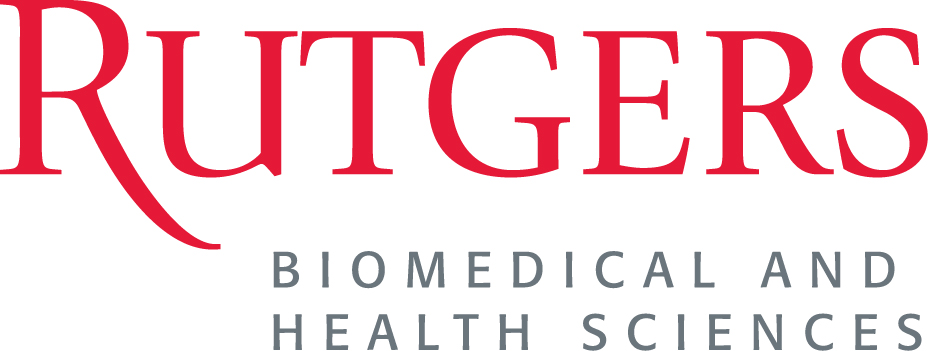RME Hot Seat – Severe Asthma: Clinical Phenotypes and the Emerging Age of Personalized Therapy
This CME-Certified Enduring Activity is Jointly Provided by


Support for this activity has been provided through an educational grant from AstraZeneca.
Release date: 6/30/2017
Expiration date: 6/30/2018
Estimated time to complete: 1.0 hour
Overview
Patients with severe treatment-resistant asthma—estimated to account for 4%–10% of all asthma cases—are characterized by persistent symptoms, compromised lung function, and a significantly increased frequency and severity of high-risk outcomes. These patients are typically insensitive to corticosteroid treatment, except at very high doses—and are thus at greater risk for several serious diseases, including type 2 diabetes and osteoporosis. This elevated risk for morbidity underscores the need for corticosteroid-sparing alternative treatments.
The discovery that severe asthma comprises at least two distinct phenotypes (eosinophilic and noneosinophilic) that are linked to differences in airway remodeling and inflammatory pathophysiology has potentially significant implications for managing this patient population. For patients with severe asthma driven by eosinophilic inflammation, several new tailored biologic therapies have received FDA approval (with others in the pipeline), offering viable therapeutic alternatives for these treatment-resistant patients.
In this edition of RME Hot Seat, our expert faculty reviews the most recent evidence and provides answers to challenging clinical questions on the risks of asthma exacerbations, the newly available drugs for severe asthma, and current best practices for managing patients with severe asthma.
Faculty
Bradley E. Chipps, MD—Program Chair
Medical Director
Capital Allergy & Respiratory Disease Center
Sacramento, California
Stephen P. Peters, MD, PhD
Thomas H. Davis Chair in Pulmonary Medicine
Chief, Section on Pulmonary, Critical Care, Allergy & Immunologic Diseases
Professor of Internal Medicine, Pediatrics, and Translational Science
Wake Forest School of Medicine
Executive Director, Respiratory Service Line, Wake Forest Baptist Health
Winston-Salem, North Carolina
Michael E. Wechsler, MD, MMSc
Co-Director
Cohen Family Asthma Institute
Professor of Medicine
Division of Pulmonary, Critical Care and Sleep Medicine
National Jewish Health
Denver, Colorado
Target Audience
This activity has been designed to meet the educational needs of allergists, immunologists, pulmonologists, and primary care providers—including nurse practitioners and physician assistants—who are involved in the treatment of patients with severe asthma.
Learning Objectives
Upon completion of this activity, participants should be able to:
- List the clinical characteristics of the various phenotypes of severe asthma
- Discuss the most recent Global Initiative for Asthma (GINA) guidelines for severe asthma treatment (Steps 4/5)
- Outline a personalized treatment plan, using targeted biologic therapies, to achieve and maintain control for patients with severe asthma based on underlying phenotype
Accreditation and Credit Designation
 | In support of improving patient care, this activity has been planned and implemented by Rutgers Biomedical and Health Sciences and RedMedEd. Rutgers Biomedical and Health Sciences is jointly accredited by the Accreditation Council for Continuing Medical Education (ACCME), the Accreditation Council for Pharmacy Education (ACPE), and the American Nurses Credentialing Center (ANCC), to provide continuing education for the health care team. |
Physicians
Rutgers Biomedical and Health Sciences designates this enduring material for a maximum of 1.0 AMA PRA Category 1 CreditTM. Physicians should claim only the credit commensurate with the extent of their participation in the activity.
Advanced Practice Nurses, Nurses, Physician Assistants
Advanced practice nurses, nurses, and physician assistants may participate in this educational activity and earn a letter of attendance as AANP, ANCC, and AAPA accept AMA PRA Category 1 Credits™ through their reciprocity agreements.
Peer Review
To help ensure content objectivity, independence, and fair balance, and to ensure that the content is aligned with the interest of the public, Rutgers Biomedical and Health Sciences (RBHS) has resolved all potential and real conflicts of interest through content review by a non-conflicted, qualified reviewer. This activity was peer-reviewed for relevance, accuracy of content, and balance of presentation by: Andrew Berman, MD, Professor of Medicine, Director, Division of Pulmonary and Critical Care Medicine/Allergy and Immunologic Diseases, Rutgers New Jersey Medical School, Newark, New Jersey.
This activity was pilot-tested for time required for participation by Michael Marsh, MD; Peter Rattner, DO; and Jennifer Williams, MD.
Disclosure
According to the disclosure policy of RBHS and to conform with Joint Accreditation requirements and FDA guidelines, individuals who are in a position to control the content of this educational activity are required to disclose to activity participants the existence of any relevant relationships with any entity producing, marketing, re-selling, or distributing health care goods or services consumed by, or used on, patients, with the exemption of nonprofit or government organizations and non-health care related companies, within the past 12 months. The existence of these interests or relationships is not viewed as implying bias or decreasing the value of the presentation. Disclosures are as follows:
Activity Faculty
Bradley E. Chipps, MD, has disclosed the following relevant financial relationships:
Consultant, Speakers Bureau, and Scientific Advisory Board: AstraZeneca, Boehringer Ingelheim, Circassia, Genentech, Novartis Pharmaceuticals, Teva Pharmaceutical Industries
Stephen P. Peters, MD, PhD, has disclosed the following relevant financial relationships:
Advisory Boards: Array Biopharma, AstraZeneca, Aerocrine, Airsonett AB, Boehringer Ingelheim, Experts in Asthma, Gilead Sciences, GlaxoSmithKline, Merck, Novartis Pharmaceuticals, Ono Pharmaceuticals, Pfizer, PPD Development, Quintiles, Regeneron Pharmaceuticals, Saatchi & Saatichi, Sanofi, Sunovion Pharmaceuticals, Targacept, Teva Pharmaceutical Industries, Theron Pharmaceuticals
Basic and Clinical Research: National Heart, Lung, and Blood Institute (Asthma Clinical Research Network, AsthmaNet, Severe Asthma Research Program, SubPopulations and InteRmediate Outcome Measures In COPD Study)
Pharmaceutical Trials: Actelion Pharmaceuticals, Amgen, AstraZeneca, Boehringer Ingelheim, Centocor, Cephalon, Genentech, GlaxoSmithKline, Forest Laboratories, MedImmune, Sanofi
Speakers Bureau: Integrity CE
Michael E. Wechsler, MD, MMSc, has disclosed the following relevant financial relationships:
Consultant: AstraZeneca, Boehringer Ingelheim, Boston Scientific, GlaxoSmithKline, Novartis Pharmaceuticals, Regeneron Pharmaceuticals, Sanofi, Teva Pharmaceutical Industries, Vectura Group
Grant/Research Support: GlaxoSmithKline, Sanofi
Reviewer
Andrew Berman, MD, has disclosed no relevant financial relationships.
Field Testers
Michael Marsh, MD; Peter Rattner, DO; and Jennifer Williams, MD have disclosed no relevant financial relationships.
Rutgers Biomedical and Health Sciences Center for Continuing Outreach and Education
Patrick Dwyer, Director, Continuing Medical Education, has disclosed no relevant financial relationships.
RedMedEd
Denise C. LaTemple, PhD, Director of Scientific Services, has disclosed no relevant financial relationships.
Jonathan S. Simmons, ELS, Senior Managing Editor, has disclosed no relevant financial relationships.
Karen Smith, Creative Director, has disclosed no relevant financial relationships.
Karen Tenaglia, Project Manager, has disclosed no relevant financial relationships.
Barbara Zosh, Director of Operations, has disclosed on relevant financial relationships.
Unapproved Product Use
This educational activity contains discussion of published and/or investigational uses of agents that are not indicated by the US Food and Drug Administration. It describes the investigational use of non-approved products including dupilumab and benralizumab for asthma. RBHS and RedMedEd do not recommend the use of any agent outside the labeled indications.
Disclaimer
The information presented in this activity is for continuing medical education purposes only and is not meant to substitute for the independent medical judgment of a physician regarding diagnosis and treatment of a specific patient’s medical condition.
The opinions expressed in this educational activity are those of the faculty and do not necessarily represent the views of any manufacturer of pharmaceuticals or devices, Rutgers Biomedical and Health Sciences, or RedMedEd. Please refer to the official prescribing information for each product for discussion of approved indications, contraindications, and warnings.
Method of Participation
There are no fees to participate in the activity. Participants must review all activity information, including the learning objectives, disclosure statements, and content. To receive CME credit, participants must complete the posttest (achieving a passing grade of 75% or greater) and program evaluation. Certificates can be printed immediately.
For questions regarding the activity content, or CE related questions or concerns, contact RBHS at 973.972.4267 or ccoe@ca.rutgers.edu.
For technical questions related to this activity, please contact RedMedEd at 610.251.6841 or education@redmeded.com.
Hardware/Software Requirements
- Apple iPad or iPad mini (iOS 8 or higher) with an Internet connection
- A computer with an Internet connection
- Internet browser (PC): Google Chrome, Internet Explorer 9 or higher, or Firefox 26 or higher
- Internet browser (Mac): Google Chrome, Firefox 26 or higher, or Safari 5 or higher
- Additional software: Adobe Flash Player and/or an HTML 5-capable browser is required for video or audio playback; Adobe Acrobat Reader may occasionally be required
Privacy
This website is managed by RedMedEd, and RedMedEd’s printed privacy policy applies to this site. CME credit for this activity is provided by RBHS. If you register for CME credit for this educational activity, RedMedEd will forward relevant personally identifiable information to RBHS so that records can be maintained concerning any credits issued to you. Aggregated data concerning registrations, posttests, and evaluations may be shared, but RedMedEd will not knowingly share any personally identifiable information. RBHS may use the information you provide on this site to contact you about your CME credit or other relevant educational activities provided through RBHS. To review RBHS’ CE privacy policy, click here.
Copyright
© 2017. This CME certified activity is held as copyrighted by Rutgers Biomedical and Health Sciences and RedMedEd. All rights reserved including translation into other languages. No part of this activity may be reproduced or transmitted in any form or by any means, electronic or mechanical, including photocopying, recording, or any information storage and retrieval systems, without permission in writing from RBHS or RedMedEd.